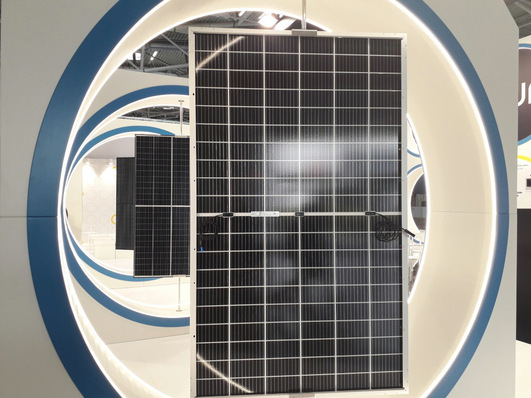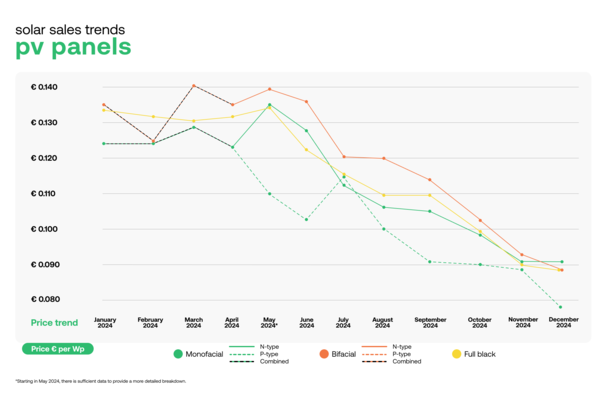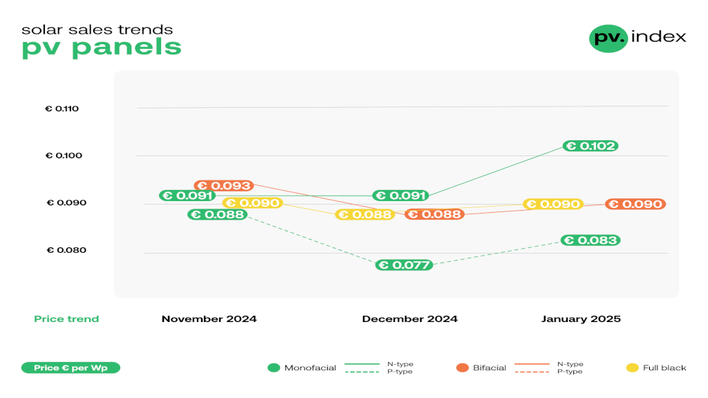Solarwatt recently received the Environmental Product Declaration (EPD) sustainability certificate for its double-glazed modules. The certificate, issued by Norway’s Norge-EPD, confirms the modules meet high standards. EPDs record the environmental profile of a component, product, or service over its entire lifecycle, including operation, dismantling, and recycling.
The ecological footprint (commonly referred to as the carbon footprint) is measured in kilograms of carbon dioxide emitted by a product from cradle to grave. The Solarwatt Panel Vision 5.0 solar module, for example, generates only 205 kilograms of CO₂ (without the frame). With an aluminium frame, the figure rises to 240 kilograms.
TÜV Rheinland: Increasing requirements for solar modules
Overarching goal – reduced carbon footprint
Just a year ago, the carbon footprint was still at 220 kilograms. “Solar modules from other manufacturers typically produce three times as many emissions,” explains Peter Bachmann, Chief Product Officer at Solarwatt. “We also ensure our strict standards for quality and sustainability are upheld throughout the supply chain.”
Fraunhofer ISE: Solar module output often overstated
Solarwatt has made impressive strides in the recycling of materials, with a recycling rate for silicon in solar cells of 45 percent and 75 percent for the aluminium in the frames. They’re also committed to continually improving these rates in partnership with their suppliers.
Rigorous stability assessments
By integrating rigorous sustainability assessments and certification processes into their production models, companies like Solarwatt are not only meeting current market expectations but are also shaping the future of solar technology. This commitment to sustainability is a vital step in ensuring that solar power becomes a key player in the transition to a greener, more sustainable energy future. (HS/TF)
More: EDP – more than 15 gigawatts under contract in PPAs worldwide








